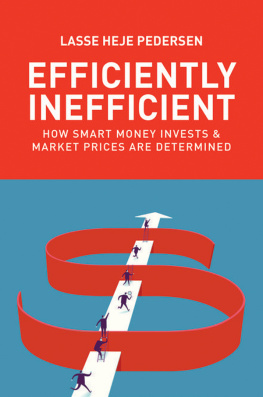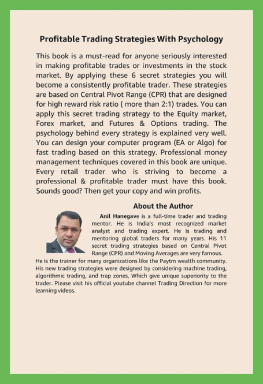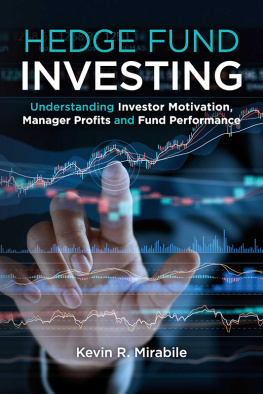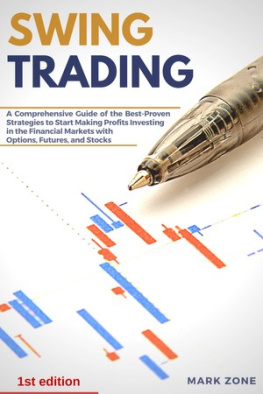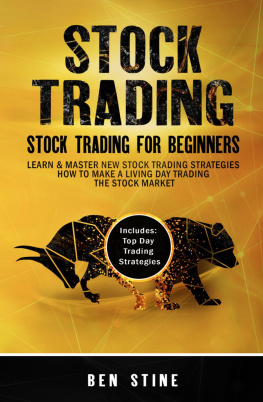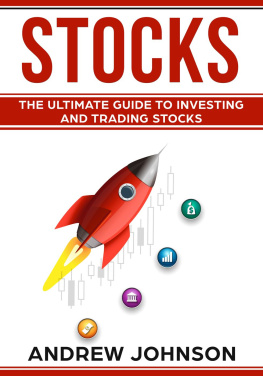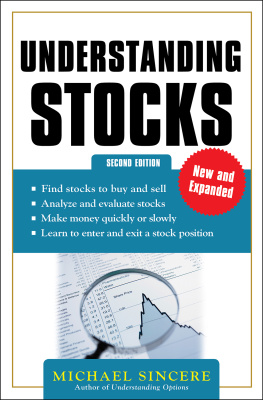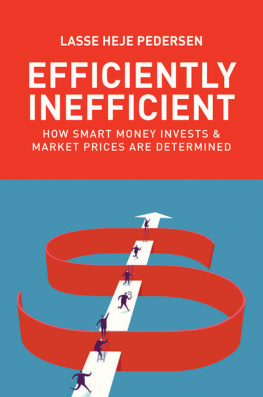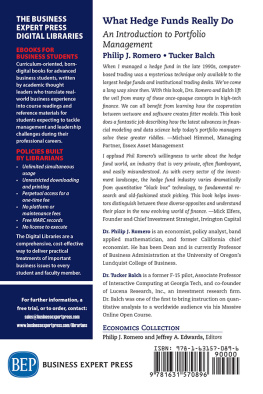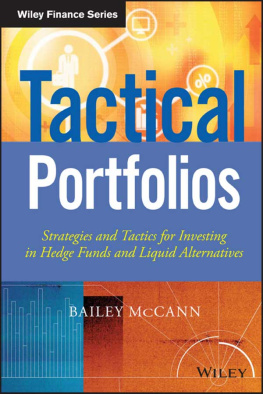Lasse Heje Pedersen - Efficiently Inefficient: How Smart Money Invests and Market Prices Are Determined
Here you can read online Lasse Heje Pedersen - Efficiently Inefficient: How Smart Money Invests and Market Prices Are Determined full text of the book (entire story) in english for free. Download pdf and epub, get meaning, cover and reviews about this ebook. year: 2015, publisher: Princeton University Press, genre: Business. Description of the work, (preface) as well as reviews are available. Best literature library LitArk.com created for fans of good reading and offers a wide selection of genres:
Romance novel
Science fiction
Adventure
Detective
Science
History
Home and family
Prose
Art
Politics
Computer
Non-fiction
Religion
Business
Children
Humor
Choose a favorite category and find really read worthwhile books. Enjoy immersion in the world of imagination, feel the emotions of the characters or learn something new for yourself, make an fascinating discovery.
- Book:Efficiently Inefficient: How Smart Money Invests and Market Prices Are Determined
- Author:
- Publisher:Princeton University Press
- Genre:
- Year:2015
- Rating:3 / 5
- Favourites:Add to favourites
- Your mark:
Efficiently Inefficient: How Smart Money Invests and Market Prices Are Determined: summary, description and annotation
We offer to read an annotation, description, summary or preface (depends on what the author of the book "Efficiently Inefficient: How Smart Money Invests and Market Prices Are Determined" wrote himself). If you haven't found the necessary information about the book — write in the comments, we will try to find it.
Efficiently Inefficient describes the key trading strategies used by hedge funds and demystifies the secret world of active investing. Leading financial economist Lasse Heje Pedersen combines the latest research with real-world examples and interviews with top hedge fund managers to show how certain trading strategies make money--and why they sometimes dont.
Pedersen views markets as neither perfectly efficient nor completely inefficient. Rather, they are inefficient enough that money managers can be compensated for their costs through the profits of their trading strategies and efficient enough that the profits after costs do not encourage additional active investing. Understanding how to trade in this efficiently inefficient market provides a new, engaging way to learn finance. Pedersen analyzes how the market price of stocks and bonds can differ from the model price, leading to new perspectives on the relationship between trading results and finance theory. He explores several different areas in depth--fundamental tools for investment management, equity strategies, macro strategies, and arbitrage strategies--and he looks at such diverse topics as portfolio choice, risk management, equity valuation, and yield curve logic. The books strategies are illuminated further by interviews with leading hedge fund managers: Lee Ainslie, Cliff Asness, Jim Chanos, Ken Griffin, David Harding, John Paulson, Myron Scholes, and George Soros.
Efficiently Inefficient effectively demonstrates how financial markets really work.
Free problem sets are available online at http://www.lhpedersen.com
Lasse Heje Pedersen: author's other books
Who wrote Efficiently Inefficient: How Smart Money Invests and Market Prices Are Determined? Find out the surname, the name of the author of the book and a list of all author's works by series.

